What is Big Data Partnership and what problem does it solve?
Big Data Partnership helps companies to capture, store, process and analyse data. Many companies struggle to derive value from data they have (or could have) due to it’s size and complexity as well as the lack of technical expertise required; that’s where Big Data Partnership step in!
We cater for this need through a range of offerings in consultancy services and educational training. As a company we help organisations to define a Big Data strategy, build use cases as well as designing a proof of value model before seeing through a full implementation. The team leverage best practice understanding, industry experience on top of a deep knowledge of technologies involved to deliver strategic and architectural guidance throughout the process.
The other arm of the business is the delivery of educational training courses that deepen the understanding of Big Data and associated technologies for decision makers, data engineers and data scientists. On top of the core concept courses we run ourselves, we are also certified providers of Hadoop and Cassandra training by Hortonworks and Datastax respectively.
What were the biggest challenges involved in building your team?
Building the team has posed numerous challenges, most of which stem from the fact that there simply aren’t enough candidates in the talent pool for the technologies we work with! Our vision has always been to build a dynamic, talented team who have the advanced knowledge and experience needed to effectively solve the problems they are presented with.
As the commercial environment for technologies such as Hadoop, Hive and MapR matures, the market-wide skills shortage will start to be addressed through attracting academics from a whole range of science and technology fields.
How does your recent partnership with Intel affect your business model and the industry in general?
We’ve got a very strong ethos around the idea of a ‘partnership’, hence our name. Our aim is to establish strategic relationships with a number of vendors in this space and work closely with them on education and service provision. We’re excited to have added another powerful distribution vendor to our partner ecosystem which allows us to service the Intel customers with the support they need to deploy a successful Big Data solution.
What are the key trends you are tracking around Big Data issues?
Big Data is still in its infancy and so we spend a lot of time so analysing trends and issues in our sector are crucial for us to maintain a dominant position. Tim Seears, CTO of Big Data Partnership, has highlighted the top 4 trends and issues he is keeping an eye on:
1) The
2) Exploratory data science
3) Data governance and compliance
4) Real-time and streaming big data analytics
Where would you like to be in one, three and five years’ time?
Our long-term goal is to be the best and most trusted big data service provider in the world.
To achieve this, in one years’ time we want to be dominating the UK market. In three years’ time, we want to have established a physical presence within certain european markets, whilst already serving customers in mainland Europe. We then want to extend this further in five years’ time – having a global physical presence encompassing North America and potentially Asia.
What are the top trends and issues facing the Big Data industry in 1, 3 and 5 years?
1 Year
Trends:
- With the successful prototypes that have been developed, we should expect to see full scale Big Data implementations for many large enterprises
- To build on the above many enterprises will begin to realise the value of Exploratory Data Science and, as a result, start to lay the foundations for enabling the development.
Issues:
- Data governance and security pose complex issues for those in the Big Data space. This can’t be combated with off-the-shelf solutions so responsibility will fall to specialists who can create bespoke implementations
3 years:
Trends:
- As technologies and implementations improve, businesses will start to expect access to insight faster and the drive to real-time big data analytics systems will accelerate.
- In a response to the issue highlighted in ‘Year 1’ above, comprehensive data governance and security features will become built-in for leading Big Data platforms.
Issues:
* performing complex machine learning at scale and in real-time will be challenging
5 years:
Trends:
* Use of advanced predictive algorithms and machine learning in the commercial sector will be widespread, with many business models deriving their core value proposition from the technology
* Enterprise-wide Exploratory Data Science will have become the de facto standard in business
* Large influx of recent Data Science graduates will provide healthy fuelling for both of these trends
* Big Data processing will be consuming data at massive scales unheard of previously, but basic cleanup/transformation processing, and data governance will have become relatively commoditised with off the shelf software
Issues:
* Machine learning will still be a relatively complex field, and highly specialised for certain industries so the intellectual challenges in unlocking new value from deep analytics will continue
As a service provider, do you plan to launch any products to address the Big Data challenges that exist?
Servicing clients with Big Data consultancy and training is the core of our business at Big Data Partnership and therefore that’s where our resources are allocated at this time. We certainly wouldn’t rule out developing products at a later date but it isn’t a focus for us right now.

Comments are closed.